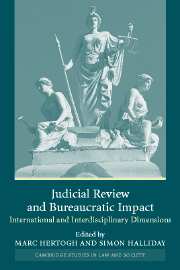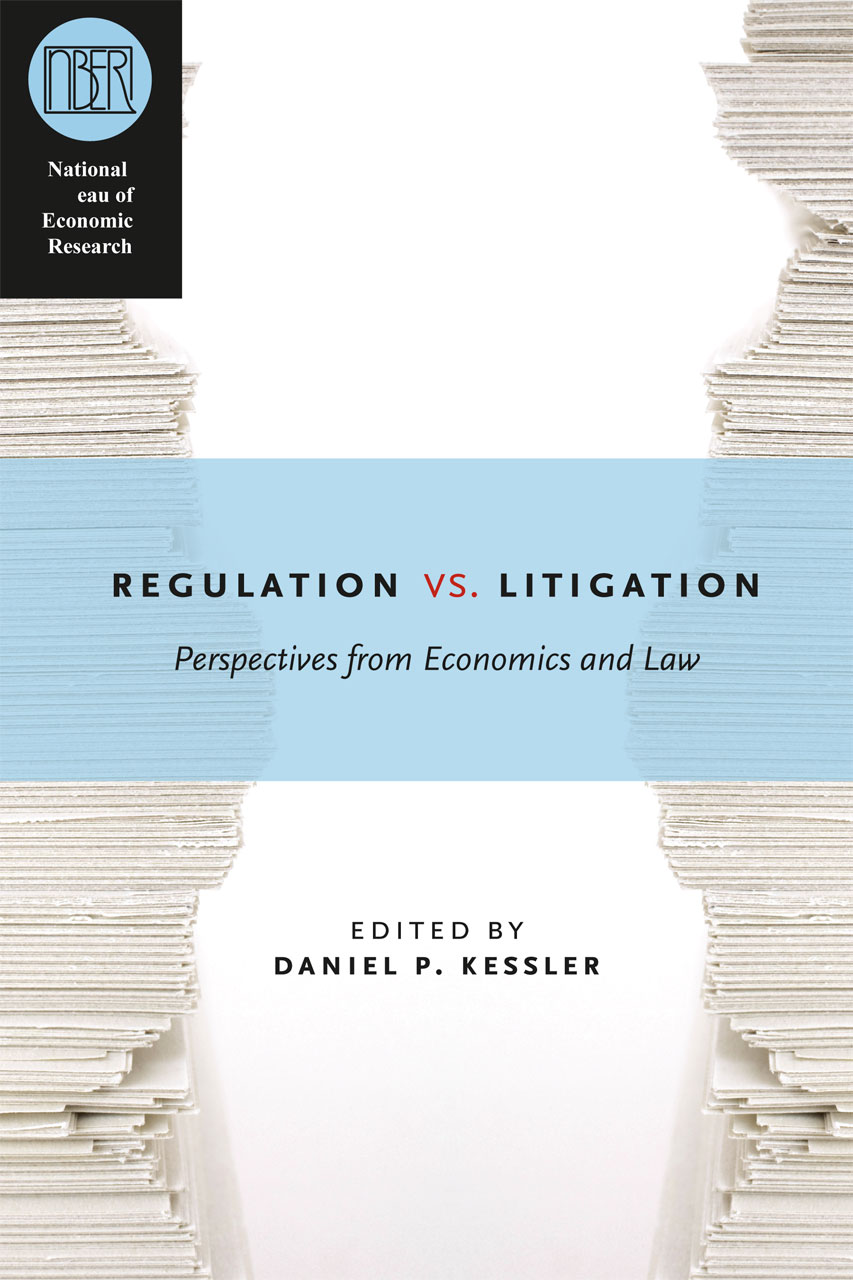Searching Administrative Law in LexisNexis
Visit the link below for great tips on searching and browsing LexisNexis for both primary and secondary Administrative Law sources.
Streaming Media for Administrative Law
-
Administrative Law Lessons from CALI: Computer-Assisted Legal InstructionAPUS students and faculty can access CALI's hundreds of legal studies video lessons with APUS's subscription. Click here for access instructions and authorization code.
-
Ethics Across the ProfessionsPacific McGeorge School of Law
Administrative Law Podcasts
-
Climate Change in the Courts: A Yale Law School Panel DiscussionYale Law School Professor Douglas Kysar, Benjamin Ewing, NYU School of Law Professor Richard Epstein, and Berkeley Law Professor Daniel Farber debate the role of courts in responding to global warming.
-
Is the Administrative State Consistent with the Rule of Law? by Richard EpsteinProfessor Epstein explains why he thinks the massive discretion routinely confided in administrative agencies is in fact inconsistent with the rule of law on a wide range of matters dealing with economic liberties, tort liability, private property, and the institutional autonomy of voluntary associations. June 13, 2008, University of Chicago Law School.
Administrative Law: An Introduction
-
Administrative Law Topic Page
 A basic introduction to the topic of Administrative Law and related reference works from Credo.
A basic introduction to the topic of Administrative Law and related reference works from Credo.
Federal Administrative Law Research
A tutorial from CUNY Law.
Researching Federal Legislation Using Congress.gov
An introduction to federal legislation searching by APUS Librarian Elizabeth Cook.
Selected Books for Administrative Law
-
Administrative Law for Public Managers by
ISBN: 9780813348810"A comprehensive guide to the essentials that public managers need to know about administrative law--why we have administrative law, the constitutional constraints on public administration, and administrative law's frameworks for rulemaking, adjudication, enforcement, transparency, and judicial and legislative review." (2014) -
Administrative Law in the Political System by
"Author Kenneth F. Warren explains the role of administrative law in shaping, guiding, and restricting the actions of administrative agencies. Providing comprehensive coverage, he examines the field not only from state and federal angles, but also from the varying perspectives of legislators, administrators, and the public." (2010) -
 Administrative Statutory Interpretation: The Aftermath of Chevron V. Natural Resources Defense
by
"Watry examines why Court deference to administrative agency interpretation of statutes appears to have declined in the aftermath of Chevron v. Natural Resources Defense Council (1984), when most legal scholars predicted that deference would increase. She argues that the model has a strong predictive capability in determining whether a justice's approach to statutory interpretation impacts how they treat cases involving contested administrative agency interpretations of statutes." (2002)
Administrative Statutory Interpretation: The Aftermath of Chevron V. Natural Resources Defense
by
"Watry examines why Court deference to administrative agency interpretation of statutes appears to have declined in the aftermath of Chevron v. Natural Resources Defense Council (1984), when most legal scholars predicted that deference would increase. She argues that the model has a strong predictive capability in determining whether a justice's approach to statutory interpretation impacts how they treat cases involving contested administrative agency interpretations of statutes." (2002) -
How Courts Impact Federal Administrative Behavior by
"What impact do federal courts have on the administrative agencies of the federal government? How do agencies react to the decisions of federal courts? This book answers these questions by examining the responses of federal agencies to the U.S. Courts of Appeals, revealing what happens inside agencies after courts rule against them." (2009) -
 Judicial Review and Bureaucratic Impact: International and Interdisciplinary Dimensions
by
"Presenting case studies from various parts of the world -- the United States, Canada, Australia, Israel, and the United Kingdom -- this landmark text offers an interdisciplinary empirical perspective on judicial review's impact on bureaucracies. Individual chapters consider fundamental conceptual and methodological issues." (2004)
Judicial Review and Bureaucratic Impact: International and Interdisciplinary Dimensions
by
"Presenting case studies from various parts of the world -- the United States, Canada, Australia, Israel, and the United Kingdom -- this landmark text offers an interdisciplinary empirical perspective on judicial review's impact on bureaucracies. Individual chapters consider fundamental conceptual and methodological issues." (2004) -
Lawyers and Regulation by
"This book is a close study of lawyers who practice occupational safety and health law in the United States, using detailed interview and survey data to explore the roles that lawyers have as representatives of companies, unions, and OSHA (the Occupational Safety and Health Administration)." (2005) -
Making Environmental Law: The Politics of Protecting the Earth by
"Nancy E. Marion shows what policies Congress have proposed and passed to protect the environment over time. Each chapter focuses on the members of Congress's response to a different environmental concern, such as ocean dumping, pesticides, and solid waste." (2011) -
 Regulation vs. Litigation: Perspectives from Economics and Law
by
"The efficacy of various political institutions is the subject of intense debate between proponents of broad legislative standards enforced through litigation and those who prefer regulation by administrative agencies. This book explores the trade-offs between litigation and regulation, the circumstances in which one approach may outperform the other, and the principles that affect the choice between addressing particular economic activities with one system or the other." (2011)
Regulation vs. Litigation: Perspectives from Economics and Law
by
"The efficacy of various political institutions is the subject of intense debate between proponents of broad legislative standards enforced through litigation and those who prefer regulation by administrative agencies. This book explores the trade-offs between litigation and regulation, the circumstances in which one approach may outperform the other, and the principles that affect the choice between addressing particular economic activities with one system or the other." (2011) -
The Endangered Species Act: History, Conservation Biology, and Public Policy by
"Since the 1970s, the Endangered Species Act (ESA), by virtue of its regulatory impact, has been a frequent subject of policy analysis. In this comprehensive history and critique of the ESA, Brian Czech and Paul R. Krausman incorporate the new model of policy design theory to frame a larger discussion about conservation biology and American democracy." (2001) -
 The Presidential Appointee's Handbook
by
"Edward DeSeve explains the core competencies that distinguish successful presidential appointees, drawing on ideas developed by scholars of public and business management, as well as years of government service. DeSeve presents a guide to the key terms, laws, and regulations that new appointees will have to deal with once in office." (2008)
The Presidential Appointee's Handbook
by
"Edward DeSeve explains the core competencies that distinguish successful presidential appointees, drawing on ideas developed by scholars of public and business management, as well as years of government service. DeSeve presents a guide to the key terms, laws, and regulations that new appointees will have to deal with once in office." (2008)
Administrative Law Blogs
-
Administrative Law MattersLawyers.com
-
Customs LawBlog of a customs lawyer in Chicago on the state of customs law and international trade law.
-
FDA Law BlogPosts from Hyman, Phelps & McNamara, P.C. the largest dedicated food and drug law firm in the country.
-
ITC 337 Law BlogUpdates on new and pending Section 337 ITC investigations on intellectual property rights and related items.
-
Law of the LandDiscussion of current laws, policies and decisions that affect the use of land.
-
Municipal MinuteUpdates on cases, laws, and other topics of interest to municipalities and local governments.
-
Notice and Comment BlogA blog by the Section of Administrative Law & Regulatory Practice, American Bar Association.
-
RegBlogRegulatory news, analysis, and opinion in affiliation with the Penn Program on Regulation.
Administrative Law and Policy Websites
-
Administrative and Regulatory Law NewsAmerican Bar Association Section of Administrative Law and Regulatory Practice
-
Administrative Law: Definition and OverviewCornell Legal Information Institute
-
How Do I Find Administrative Decisions?University of Virginia Library
-
Selected Administrative Law Decisions of the U.S. Supreme CourtCornell Legal Information Institute
Federal Administrative Actions, Laws, & Regulations
-
Administrative Procedure Act (5 U.S.C. Subchapter II)National Archives
-
Code of Federal Regulations (CFR)FDsys: 1994-current
-
Federal RegisterFDsys: 1994-current
-
Federal RegisterOfficial daily publication of the executive branch since 1936.
-
Judicial Review of Agency Actions (42 USC § 10139)Cornell Legal Information Institute
-
Presidential ActionsWhiteHouse.gov
-
Regulations.govInformation on the development of Federal regulations and other related documents issued by the U.S. government.
-
U.S. Executive OrdersExecutive Orders January 8, 1937-present; compilation of signed Presidential documents received by the Office of the Federal Register, 1996-present.
U.S. Federal Agencies
-
U.S. Government ManualThe official handbook of the Federal Government. FDsys: 1995-present.
State and Local Government Regulations
-
County Government - State StatutesCornell Legal Information Institute
-
Local Government - State StatutesCornell Legal Information Institute
-
Municipal Government - State StatutesCornell Legal Information Institute
-
State Government - StatutesCornell Legal Information Institute